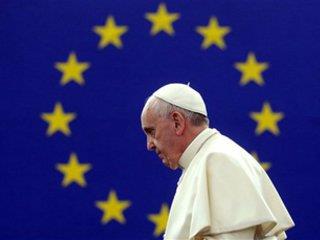by Rajnish Singh
As Pope Francis lies in state after his death on 21 April 2025, the future of the Catholic Church is already being debated. With over 1.4 billion followers worldwide, the Church now stands at a cross road, not only just spiritually, but geopolitically.
Francis was more than a pontiff he was a statesman. From climate change to migration, war to inequality, his moral voice cut across faiths and frontiers. But as his funeral approaches, attention turns to the conclave, and to what kind of leader the Church will choose next. Born Jorge Mario Bergoglio in Argentina, Francis redefined the papacy with humility and boldness. His choice of name after Saint Francis of Assisi signalled his focus on simplicity, compassion and justice. He was the first Jesuit and non-European for nearly a thousand years to be elected as Pope.
However, to conservative Catholics, he was a radical, as he pushed a softening of the Church’s stance on divorce, LGBTQ+ inclusion, and liturgical reforms. But many liberals felt he did not go far enough, especially on women’s roles in the church, clerical celibacy, and abortion rights. His handling of sex abuse scandals drew criticism globally for the lack of transparency in investigations despite numerous apologies.
One of his last tours, when visiting Belgium, was considered a disaster, when Catholic Universities, nongovernmental organisations and even the prime-minister sharply criticised his stance on the role of women in society and a lack of empathy for child abuse victims.
Still, his diplomatic reach was impressive. He helped re-establish ties between the US and Cuba, brokered a groundbreaking bishop agreement with China, and called for peace in conflict zones including Ukraine, the Middle East and, most recently, Sudan.
Francis also mastered soft power. His 2015 encyclical Laudato Si’ framed climate change as a moral issue, earning praise from both environmentalists and world leaders. He openly challenged nationalism, economic injustice, and what he called a “bureaucratic” Europe, criticising the EU as a tired “grandmother” in need of revival.
But perhaps his most lasting legacy is geographic. Over 70% of Catholics now live in Latin America, Africa, and Asia. Francis recognised this and appointed cardinals from these regions, reducing European dominance in the College of Cardinals.
Today, Europeans account for less than 40% of voting cardinals. Which sets the stage for a historic upcoming conclave, for the first time, a non-European successor is not just possible, but probable. Leading candidates include Cardinal Luis Tagle of the Philippines and Cardinal Peter Turkson of Ghana. Their election would mark more than a symbolic break with the past. It would cement a structural shift away from Eurocentric Catholicism and signal a Church increasingly aligned with the needs and concerns of the Global South.
This transition mirrors a larger truth that Europe as a global power is becoming less influential. Its population is shrinking. Its moral authority is eroding. And its political and economic influence is being overtaken by rising powers in Asia, Africa, and Latin America.
Whoever succeeds Francis will face deep ideological divides. From LGBTQ+ rights to women’s ordination and clerical abuse, the next pope must balance doctrinal tradition with calls for reform. A non-European pope might amplify the Church’s global voice on justice and poverty—but risk pushback from conservative factions in Europe and North America.
This moment is bigger than internal politics. It is a test of whether the Catholic Church can evolve with its flock, or retreat into old centres of power. Francis wore simple shoes, but his successor must be ready to walk a world stage with complexity, courage, and conviction. Especially challenging when international relations are becoming even more fragmented.
The conclave’s decision on where the Pope comes from in the coming days may not just shape the future of Catholicism. It could signal an acceptance of a power shift away from the West to the Global South, just as its happening on the international stage.




 By: N. Peter Kramer
By: N. Peter Kramer
